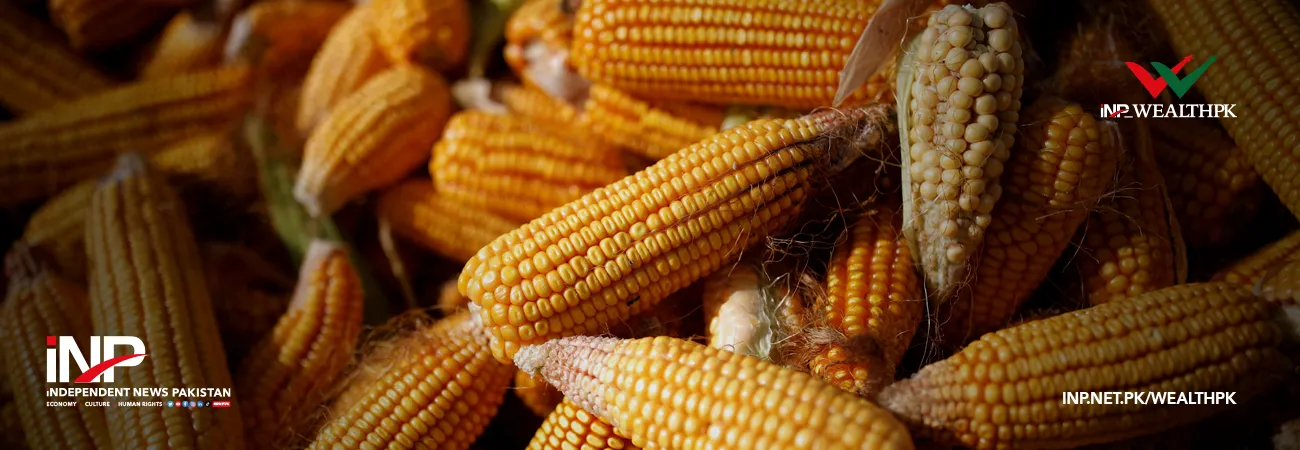INP-WealthPk
Azeem Ahmed Khan
The use of genetically modified (GM) crops could mark a major step forward for Pakistani farmers grappling with challenges such as low crop yields, pest infestations, water scarcity, and the effects of climate change. Usama Abdul Rauf, a researcher at the Research for Social Transformation and Advancement, made this observation while speaking to WealthPK.
He said that in the past, the Green Revolution helped Pakistan boost crop production through the use of high-yield seeds and chemical fertilizers. However, over time, this approach damaged the soil, reduced water availability, and made farmers overly dependent on chemicals, harming both the environment and the economy. In contrast, he said, genetically modified crops offer a better alternative.
They can produce more food while requiring fewer chemical inputs and are more resilient to extreme weather and poor soil conditions. Usama noted that traditional farming methods in Pakistan have reached their limit. The excessive use of chemical fertilizers and inefficient irrigation have degraded the land and reduced food output, posing a threat to the country’s long-term food security. “Genetically modified crops can help address these issues, as they are engineered to resist pests, diseases, and harsh climates.
As a result, they perform better and require fewer chemical treatments,” he added. Global research indicates that genetically modified crops have significantly increased yields, especially in developing countries like Pakistan. Embracing GM farming is not only beneficial for food production but also essential for strengthening the agricultural economy and ensuring food availability for future generations. Usama said, “The Gene Revolution can bring significant benefits to Pakistan’s agriculture sector.
Higher yields can reduce the country’s reliance on food imports and promote food security. For instance, genetically modified crops like Bacillus thuringiensis (Bt) cotton can yield up to 30% more than conventional varieties. GM crops also need fewer pesticides and fertilizers, which lowers production costs and reduces environmental pollution — a key concern in Pakistan, where excessive chemical use has already harmed water and soil resources,” he said.
“Genetically modified crops can withstand drought, heat, and saline soil, helping farmers adapt to climate change and maintain stable harvests,” Usama said. Some genetically modified crops are enriched with vitamins, contributing to improved public health and reduced malnutrition. For example, Golden Rice contains vitamin A and can help combat malnutrition in Pakistan, he added. In fact, Usama said, GM crops have boosted agricultural production worldwide.
Citing further examples, he noted that Herbicide-Tolerant soybeans in the United States have increased yields by 12%, while Insect-Resistant maize in South Africa has shown yield gains of 5% to 25%. Genetically modified crops have also improved farmers’ incomes in developing countries. They enable higher production on the same or smaller plots of land, helping to protect forests and natural ecosystems by reducing the need for agricultural expansion.
Despite these benefits, Pakistan faces several obstacles to effectively adopting genetically modified crops, Usama said. First, the country lacks a clear and supportive regulatory framework for approving and managing GM crops, which discourages investment and slows development, he added. Second, many farmers and consumers have limited awareness of GM technology and question its safety, leading to fear and resistance, he noted.
Developing genetically modified crops requires substantial funding and advanced technology, yet Pakistan’s investment in agricultural research remains insufficient. Greater support and collaboration with universities and private sector organizations are essential for fostering innovation and technological progress, he added. He also noted that growing and distributing genetically modified crops is difficult without proper cold storage, irrigation systems, and transportation infrastructure in the country.
Usama said Pakistan must take several steps to fully leverage the potential of genetically modified crops. This includes establishing a comprehensive regulatory framework for biotechnology. In addition, the country needs to streamline the approval process for GM crops, ensure safety standards are met, and promote private investment in biotechnology, he added.
To help farmers and consumers understand the benefits and safety of genetically modified crops, Usama suggested launching public education campaigns, training programs, and workshops. The government should also increase investment in agricultural R&D and collaborate with international research institutions to develop GM crops suited to Pakistan’s specific needs.
Usama said it is also important to improve storage, irrigation, and transportation networks to reduce food waste and ensure crops reach markets in good condition. Businesses should have easier access to loans and technical assistance to support the expansion of GM farming.
Credit: INP-WealthPk













